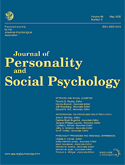Meetings, problem solving, and the power of three
 Meetings, meetings, meetings. Don't you just love meetings?
Meetings, meetings, meetings. Don't you just love meetings?
But new research in the Journal of Personality and Social Psychology suggests that having more people in a meeting may actually reduce its effectiveness.
Here comes the science bit.
Researchers looked at whether groups of 2, 3, 4 or 5 people were the most effective at solving problems. They also asked individuals to work on their own to see if groups outperform individuals.
Surprisingly, what they found was that two heads were not better than one. 2-person teams were no faster at solving problems than combining the outputs of two individuals working separately.
The larger teams consisting of 3, 4, or 5 people were all faster than either individuals working separately or 2-person teams. But 4-person and 5-person teams weren't faster than 3-person teams - suggesting that the extra bodies in the teams aren't able to contribute effectively.
So. The implications are clear. When you're faced with complex problems to solve at work, two heads aren't enough. You need three members in your team to speed problem-solving. On the other hand, having more than three people won't make the team any more effective.
This has implications for large team meetings or even workshops too. If you have a big group of people, they won't be able to solve problems effectively - so it's worth splitting them into a small number of (ideally 3-person) syndicates for as much of the time as possible.
Oh, and for all of the in-depth analysis, click here to read the full article.









